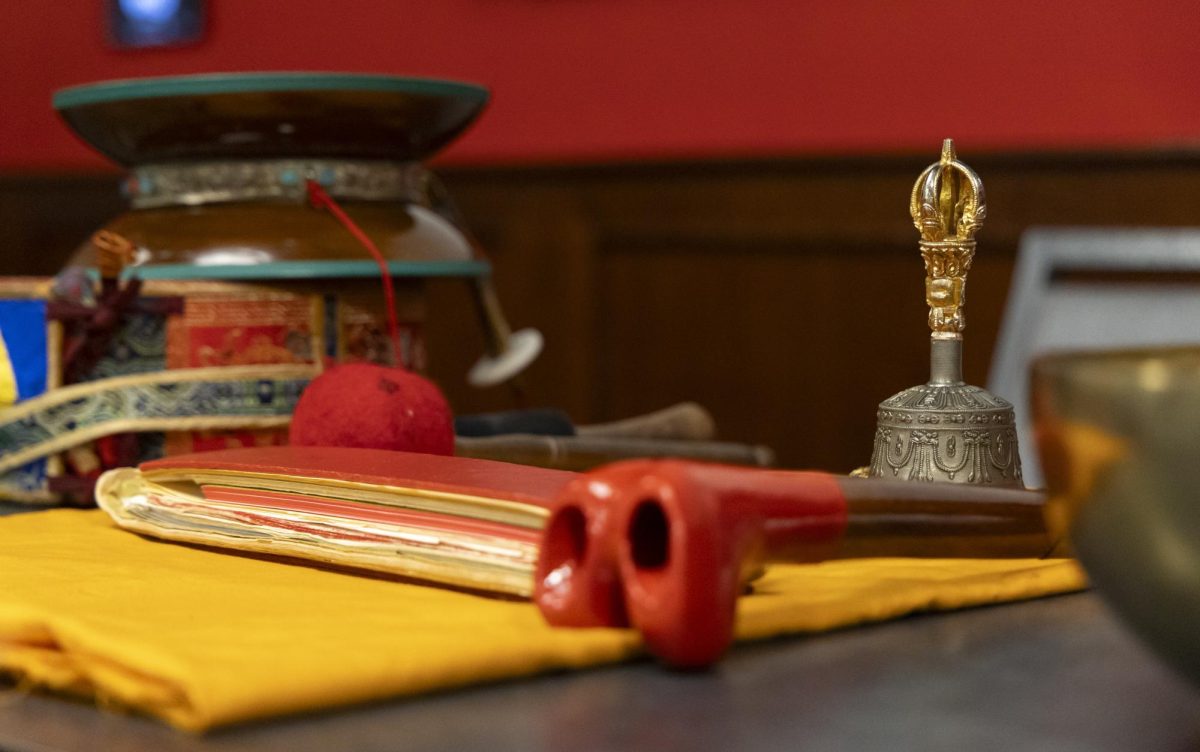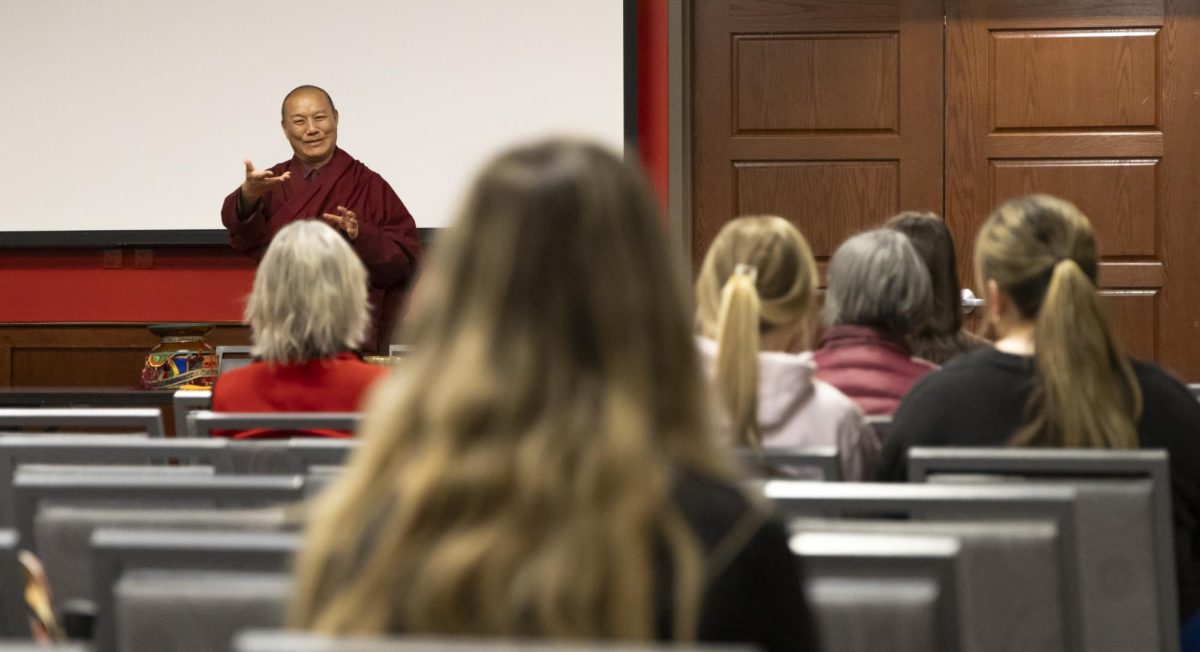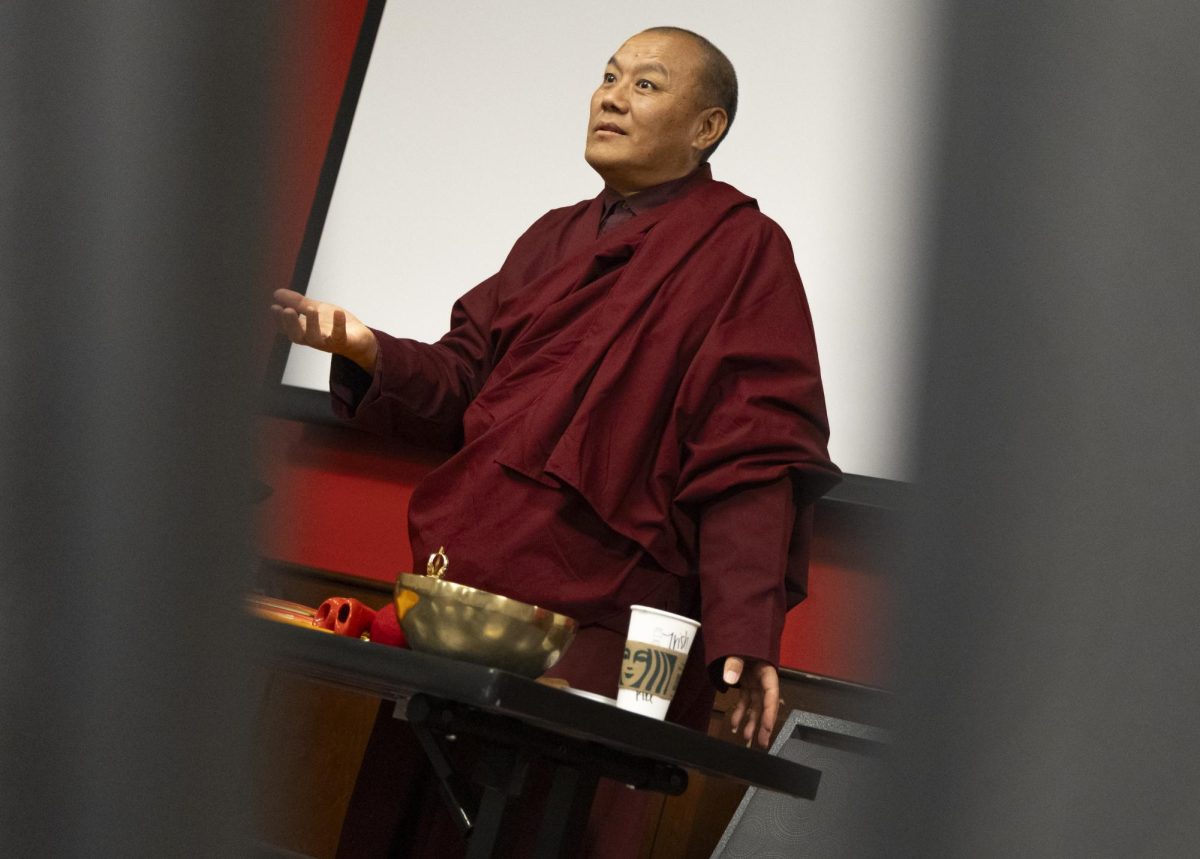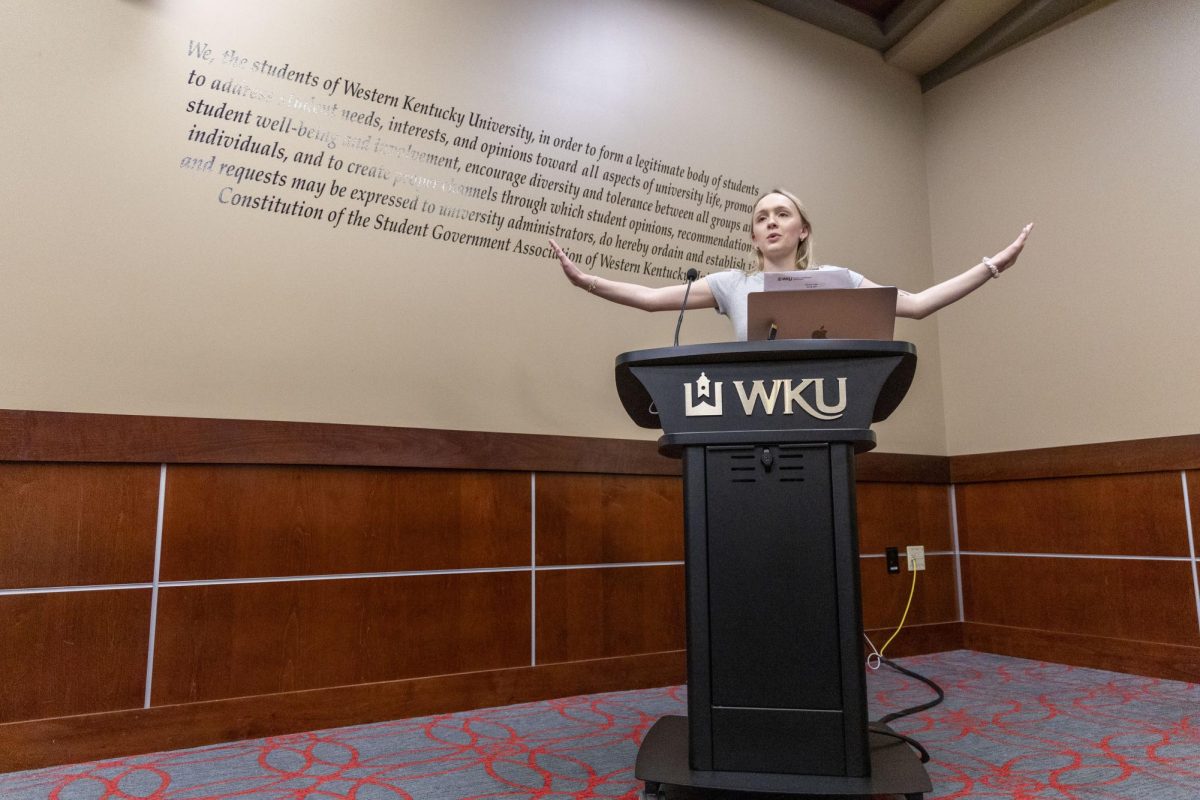From the mountains of Nepal to the hill of WKU, the Venerable Khepo Tsering Phuntsok traveled to give his perspective on compassion and mindfulness.
Phuntsok, a Buddhist monk, has been traveling to America since 2010, most commonly visiting Kentucky and Louisiana. Phuntsok, dressed in red robes, used his experience in the Buddhist faith to advise students how to live with less suffering as part of a speaker event hosted by the WKU Department of Social Work Tuesday.
Phuntsok said he began studying the Buddha’s teachings when he was between 11 and 12 years old. He said compassion and wisdom are two parts of a whole that cannot be separated.
“Compassion and wisdom is like two wings of the bird,” Phuntsok said.
Phuntsok continued that when people value compassion and wisdom, they can open their hearts and minds like a “blooming flower.”
Phuntsok’s message of compassion and wisdom was a major takeaway for Ilana Fink, a sophomore sociology and religious studies double major. She said she thought the overlap between Buddhist and Christian beliefs was interesting.
“Love thy neighbor, love thy enemy, love thyself, to be able to do that with that wisdom and understanding is one area of overlap that I see,” Fink said.

Phuntsok demonstrated his teaching physically with a singing bowl, a bell and vajra, and a two-sided drum. He told the Herald the singing bowl served as a sound offering and the bell and vajra as well as the two sides of the drum represent compassion and wisdom.
Phuntsok said the physical representation of compassion and wisdom helps to remind people of all the living things we share the world with.
“This is what Buddha taught, and during your practice, this what you have to meditate,” Phuntsok said. “I’m including all sentient beings to give the happiness and peace and love.”
Phuntsok said that when people consider animals it can help people be more thankful for their lives.
“We have a choice, but animals, insects, they don’t have a choice,” he said.

Phuntsok said being grateful for one’s opportunities is an important way to combat stress.
“We just feel fortunate for all these opportunities and rights,” said Phuntsok. “I think those are very important part of the mindfulness practice to show you show the gratitude for your health and your life.”











